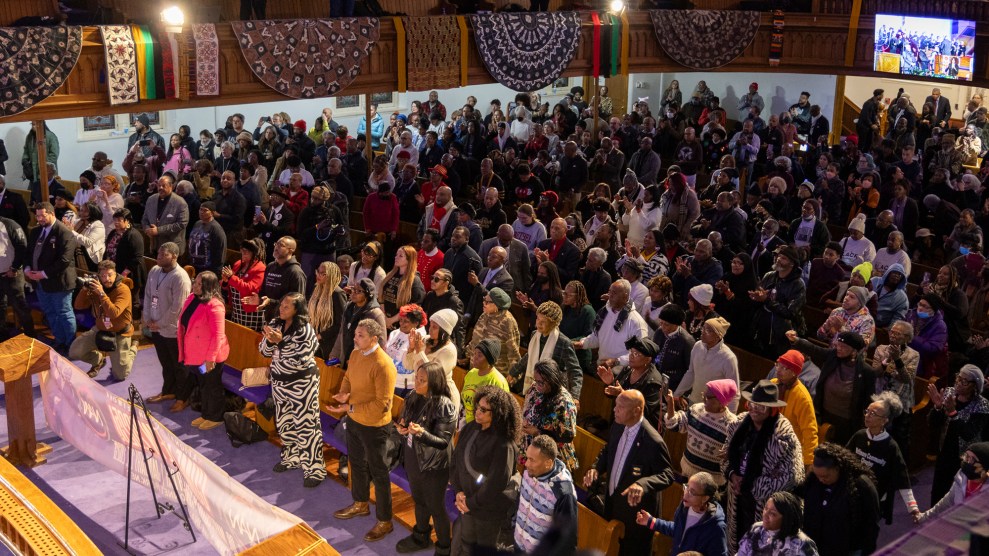Royce Christensen, 21, choked back tears at a candle-lit vigil in Las Vegas on Tuesday night as he remembered one reaction he had during the attack he survived two days earlier: laughter, born of shock.
“How do you react to something so insane? So ridiculous?” he said.
Christensen, along with his entire family, works for Contemporary Services Corporation, a crowd management company that provided security for the Route 91 Country music festival. The family had only recently moved from Houston, Texas, to Las Vegas—just in time to escape Hurricane Harvey and the catastrophic flooding that took 82 lives. “And then this,” he said.
He was behind the stage when bullets started whizzing overhead. People took shelter behind the tour busses, some with gunshot wounds; he tried to stay hidden and calm. Later, when the shooting finally stopped, he walked through “a maze of bodies” helping people evacuate. He saw a truck weighed down with the wounded and the dead. “And I just, I couldn’t help but laugh because it was the most ridiculous and insane thing I had ever seen in my life.”
In the days since the massacre that left 58 dead, hundreds wounded, and many more thousands traumatized, Las Vegas has been awash in community events aimed at starting what will be a long and challenging healing process. Volunteers planted a memorial garden. There were sunset and candle-lit vigils. Venues held concerts to honor victims. Memorials sprung up near the festival grounds; visitors wrote messages, placed flowers and lit candles.
“Everybody responds to these things very differently,” says Psychologist Michelle Paul, a professor at UNLV who, after receiving a midnight text about the shooting, was among a small army of volunteer mental health professionals who mobilized to help. First and foremost, she says, it’s important those who have been affected “to make room for whatever emotions come up.” Sadness, anger, confusion, despair—they’re all normal. And then, she says, it’s time to reconnect with others, “because that’s when people start to realize there are way more helpers in the world.”
Christensen, the young security guard, is trying out one way to cope: “They say the best part for therapy is to tell your story,” he said that at the vigil. Watch his story above.

















